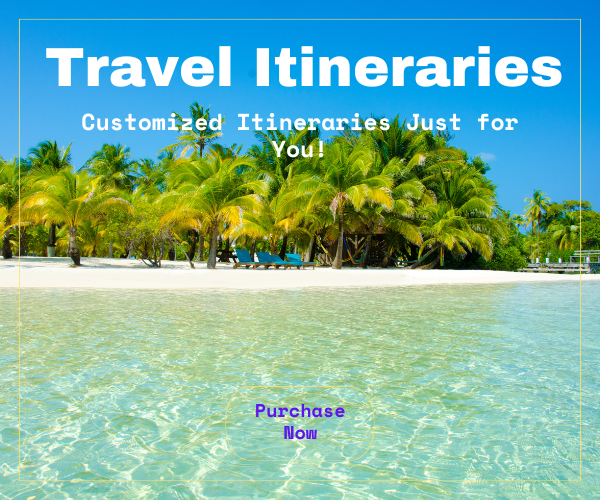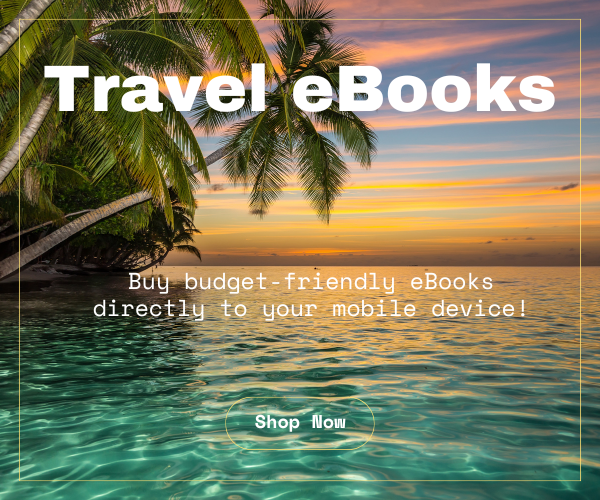
Tips for Crafting the Perfect Digital Travel Itinerary

Embarking on an unforgettable journey requires precise planning, where invaluable travel itinerary tips take centre stage.
Whether you’re venturing on a quick getaway or an extended adventure into multiple countries or cities, creating a travel itinerary—mainly digital—is essential to ensure that every trip detail is well-organised and easy to follow. From flight details to daily activities or tours, a well-structured itinerary keeps you on track, allows you to maximise your time, and enjoy a stress-free travel experience.
In today’s digital age, abundant travel planning tools make crafting a comprehensive and customised digital travel itinerary easier than ever before. These tools provide everything from seamless synchronisation across devices to the ability to embed essential documents all in one place. Whether you prefer a detailed day-by-day plan or a more flexible approach, the right tools can transform your travel itinerary into a streamlined guide that keeps your trip on course.
One key feature of a modern itinerary is the ability to access it without an internet connection. An offline travel itinerary ensures you have all your plans at your fingertips, even in areas with limited connectivity. By downloading your digital travel itinerary, you can confidently navigate your journey, knowing that every essential detail is a tap away, no matter where your travels take you.

Tips for Crafting the Perfect Digital Travel Itinerary.
Tips for Crafting the Perfect Digital Travel Itinerary
A well-structured plan can be your best travel companion when creating a digital travel itinerary. Whether you’re a meticulous planner or someone who prefers a bit of spontaneity, an excellent online travel itinerary ensures you have all the essential details at your fingertips, leaving you more time to enjoy your trip. Here are some crucial tips for crafting the perfect digital travel itinerary.
1. Use Reliable Tools and Apps
Empower your travel planning with the right platform or app. Reliable and user-friendly tools like Google Docs and Google Sheets or dedicated travel apps like TripIt or Wanderlog are excellent.
These tools allow for easy editing, sharing, and offline access, putting you in control of your itinerary and making it always available, even without an internet connection. Look for the ability to sync across devices so your travel itinerary is always up to date, whether you’re using your phone, tablet, or laptop.
2. Include all essential details in your online travel itinerary.
A comprehensive digital travel planner includes all the essential information required for your trip abroad, such as flight numbers, accommodation addresses, check-in and check-out times, transportation details, booking references, and emergency contacts.
Additionally, consider adding notes on visa requirements, local currency, time zone differences, and any other specifics that might affect your travel experience. The more detailed your itinerary, the less likely you are to encounter unexpected hiccups along the way.
3. Organise by Day and Time
Structure is everything when it comes to a well-organised travel itinerary. It’s essential to break down your schedule by day and time, clearly outlining what’s planned for each part of your trip. Use headings for each day and list activities in chronological order.
Proper organisation helps ensure a smooth flow of events, especially when multiple activities are planned—factor in travel time between locations to avoid rushing from one place to another.
Organise by Day and Time and don’t miss a beat on your adventure.
4. Include Backup Plans
Travel plans often involve unexpected changes, so it’s wise to include backup options in your itinerary. These could include an alternative restaurant, a different sightseeing option, or an emergency contact for transportation.
These backup plans provide peace of mind and reassurance, saving you stress if your original plans fall through. It’s always better to be prepared with a Plan B than to be sorry.
5. Add Important Links and Documents
Incorporating hyperlinks to important websites and embedding copies of essential documents within your travel itinerary can be incredibly useful. Whether it’s your hotel page, a tour operator’s contact details, or a link to an online map, having these at your fingertips can streamline your trip.
If possible, embed copies of tickets, visas, or insurance policies directly into your digital travel itinerary so everything is in one place and easily accessible.
6. Make It Accessible Offline
One of the most significant advantages of a digital travel itinerary is the ability to access it offline. Download a copy to your device to ensure your itinerary can be viewed without an internet connection.
Many travel apps store data locally, so you’re safe if you lose connectivity. PDF versions are instrumental as they are compatible with most devices and can be easily shared with travel companions.

Where will travel planning to take you during your travels?
7. Customise for Your Needs
Your travel itinerary should reflect your unique travel style and preferences. Whether you like to plan every detail or prefer a more relaxed approach, your digital travel itinerary should cater to your needs. Add notes on must-visit spots, dietary preferences, or other personal touches that make your itinerary uniquely yours.
The more tailored your digital travel itinerary is, the more it will enhance your travel experience and make you feel that your unique preferences are valued.
8. Keep It Simple
While being thorough is essential, avoid overwhelming your travel itinerary with excessive information. Focus on the essentials and keep the layout clean and easy to navigate.
Use bullet points, clear headings, and sufficient spacing to make it easy to read, especially when you’re on the go. A simple, well-organised digital travel itinerary is more accessible and reduces the chances of missing important details.
9. Incorporate Travel Buddies’ Preferences
If you’re travelling with others, it’s essential to incorporate their preferences into the itinerary. This could involve including activities they’re interested in, planning meal times around dietary restrictions, or scheduling downtime to suit everyone’s energy levels.
Collaborating with your travel companions on the itinerary can make the trip more enjoyable and ensure everyone’s needs are met. As we know, everyone has different travel agendas.
10. Regularly Update and Review
An itinerary is a living document and should be updated regularly. As you finalise bookings, discover new attractions or change plans, reflect these updates in your itinerary.
Periodically reviewing your travel itinerary ensures that it remains accurate and relevant to your trip, helping you avoid surprises and stay on track.

Craft your travel ideas and make it the best moment of your life.
Why Choose Fair Dinkum Traveller’s Digital Travel Itinerary Services?
At Fair Dinkum Traveller, we understand the importance of a well-crafted travel itinerary. That’s why we offer personalised travel itinerary services tailored to your unique travel style and needs.
Our digital travel itineraries are comprehensive, easy to use, and accessible through our dedicated app. With our app, you can download your itinerary for offline use, ensuring that you always have your travel plans at your fingertips, even without an internet connection.
Benefits of Fair Dinkum Traveller’sTraveller’s Travel Itinerary Services
Our tailored travel itineraries go beyond the basics, offering a seamless experience. We include all essential details, from flight information to accommodation and activities, all in a user-friendly format. Whether you prefer a detailed day-by-day plan or a more flexible schedule, we customise your itinerary to suit your preferences.
In addition to the ease of offline access, our digital travel itineraries are regularly updated to reflect any changes or discoveries, ensuring that your travel plans are always current and accurate. With Fair Dinkum Traveller’s travel itinerary services, you can confidently travel, knowing that every detail has been meticulously planned.
Check out Fair Dinkum Traveller’s Travel itinerary Services by clicking this link!
Conclusion Crafting the Perfect Digital Travel Itinerary
The perfect digital travel itinerary requires attention to detail, organisation, and foresight. Following these tips, you can create an itinerary that keeps you organised and enhances your overall travel experience. Whether planning every minute or leaving room for spontaneity, a well-prepared travel itinerary is your key to a stress-free and enjoyable journey.
If you’re looking for a hassle-free way to plan your travels, consider using Fair Dinkum Traveller’ sTraveller’s tailored travel itinerary services. Our app lets you download your digital itinerary for offline use, ensuring you can access all your travel details wherever you go. Let us take care of the planning so you can focus on making the most of your trip.
Related Content to Fair Dinkum Traveller!
- 2024’s Top Travel Trends: Where to Next for Travel Enthusiasts?
- Types of Guests in the Hotel – What Type of Guest Are You?
- Fun Things to Do on a Plane When You’re Bored!

Allow Fair Dinkum Traveller to plan your travel itinerary.
















































Get Your Free E-Book Today!
Stay in the loop with our monthly newsletter! Get expert travel tips and destination advice, and snag a free E-Book!
You have Successfully Subscribed!